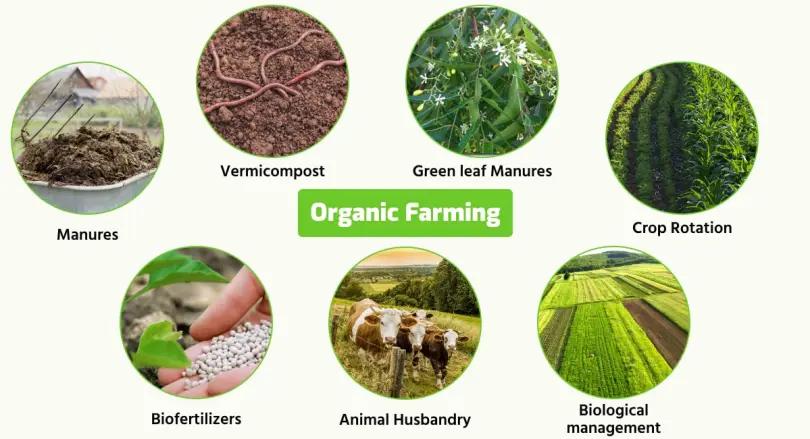Soil health is the cornerstone of organic farming, underpinning everything from crop yields to ecosystem resilience. Unlike conventional systems that often rely on synthetic inputs, organic agriculture depends on living, thriving soils to nourish plants and sustain productivity. As the organic sector grows, understanding and enhancing soil health has become a top priority for farmers committed to sustainability.
Healthy soil is a dynamic ecosystem, teeming with microorganisms, organic matter, and nutrients. These components work together to support plant growth, regulate water retention, and sequester carbon. For organic farmers, maintaining this balance is both a science and an art. Practices like crop rotation, cover cropping, and composting are essential, as they replenish nutrients and prevent soil degradation. Research from the Rodale Institute shows that organic soils can store up to 25% more carbon than conventional soils, making them a powerful tool in the fight against climate change.
One of the biggest challenges in organic farming is managing soil fertility without synthetic fertilizers. This requires a deep understanding of soil chemistry and biology. For example, legumes planted as cover crops can fix nitrogen from the atmosphere, enriching the soil naturally. Similarly, compost applications introduce beneficial microbes that break down organic matter, releasing nutrients over time. However, these processes must be carefully timed and monitored to avoid nutrient imbalances or leaching.
Technology is playing an increasingly important role in soil health management. Soil testing kits and sensors now allow farmers to measure nutrient levels, pH, and moisture in real time, providing data to guide decisions. Advanced tools like spectroscopy can even analyze microbial activity, offering insights into the soil’s biological vitality. These technologies enable organic farmers to apply inputs more precisely, reducing waste and enhancing soil quality.
Organic certification standards also emphasize soil health, requiring farmers to demonstrate practices that protect and enhance it. This can include minimizing tillage to preserve soil structure or using mulches to prevent erosion. Compliance with these standards is rigorous, but it ensures that organic farms contribute to long-term environmental health. For farmers, the payoff is clear: healthy soils produce more resilient crops, capable of withstanding pests, diseases, and extreme weather.
Education is critical to advancing soil health practices. Many organic farmers are turning to workshops, online courses, and peer networks to stay updated on the latest research. Topics like regenerative agriculture, which focuses on rebuilding soil organic matter, are gaining traction as farmers seek to go beyond sustainability and actively restore degraded lands. These efforts are supported by organizations like the Soil Health Institute, which provides resources and training for farmers worldwide.
The benefits of healthy soil extend far beyond the farm. By sequestering carbon, organic soils help mitigate climate change. They also improve water quality by filtering runoff and reducing nutrient pollution in rivers and lakes. For consumers, organic products grown in healthy soils often have higher nutritional content, adding value to the organic label.
As the global population grows and arable land becomes scarcer, the importance of soil health in organic farming cannot be overstated. Farmers who prioritize their soils are not only ensuring their own success but also contributing to a more sustainable food system. With the right practices, tools, and knowledge, organic agriculture can continue to flourish, proving that healthy soils are the foundation of a healthier planet.


